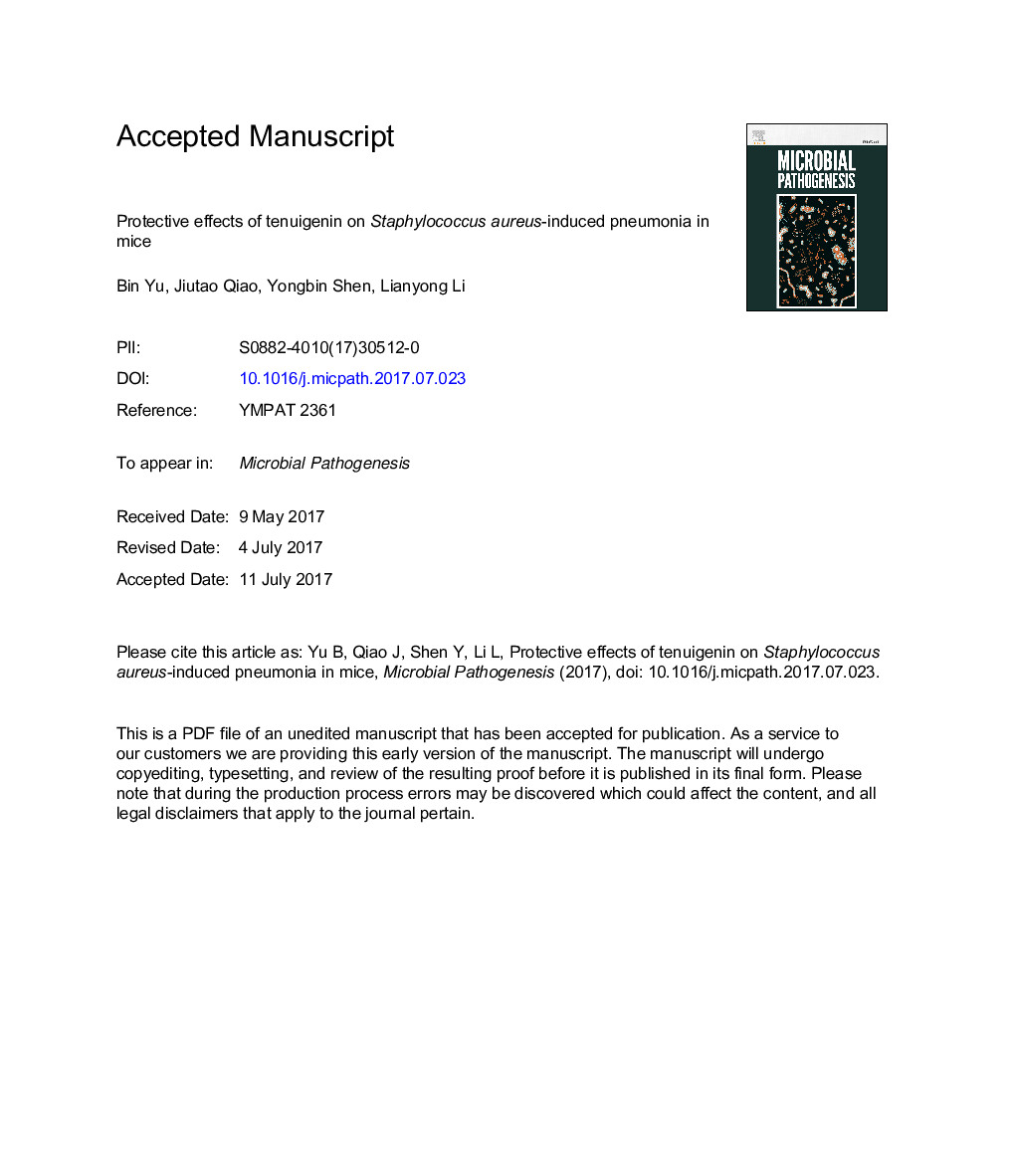| Article ID | Journal | Published Year | Pages | File Type |
|---|---|---|---|---|
| 5673688 | Microbial Pathogenesis | 2017 | 13 Pages |
Abstract
Pneumonia is the leading cause of death in infants and young children. Staphylococcus aureus (S.aureus) is one of the most important bacteria that leads to pneumonia. Tenuigenin (TGN), a major active component isolated from the root of the Chinese herb Polygala tenuifolia, has been known to have anti-inflammatory effect. In this study, we aimed to investigate the protective effects of TGN on S.aureus-induced pneumonia in mice. The results showed that TGN significantly attenuated S.aureus-induced lung histopathological changes. TGN also inhibited lung wet/dry (W/D) ratio, and inflammatory cytokines TNF-α and IL-1β production. Furthermore, S.aureus-induced NF-κB activation was significantly inhibited by the treatment of TGN. In conclusion, the results of this study showed that TGN protected against S.aureus-induced pneumonia by inhibiting NF-κB activation. TGN might be a potential agent in the treatment of pneumonia induced by S.aureus.
Related Topics
Life Sciences
Immunology and Microbiology
Microbiology
Authors
Bin Yu, Jiutao Qiao, Yongbin Shen, Lianyong Li,
